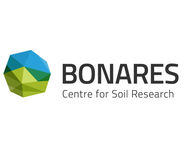Excretion of nitrogenous waste by soil fauna and assessment of the contribution to soil nitrogen pools (2022)
Lang, B., Russell, D. J.
soil-organisms, 94 (2), 69–83
Abstract
The provisioning of nitrogen for plant growth is a key function of soils. Soil fauna primarily affect nitrogen mineralization through their interactions with microorganisms, but the excretion of feces and nitrogenous waste products can also supply plants with a considerable amount of their nitrogen requirements. The influence of soil fauna on soil nitrogen is rarely considered in agricultural soils. High amounts of mineral fertilizers are often applied, which are likely to be leached or denitrified from the soil if the amount of plant-available nitrogen exceeds crop requirements. This has profound consequences for the environment. Thus, we require a better understanding of the role of soil fauna in nutrient cycling to improve fertilizer management and agricultural sustainability.
To this end, we review the current state of knowledge on the excretion of nitrogenous waste by soil fauna, focusing on earthworms, enchytraeids, nematodes, springtails, mites, isopods and myriapods. This includes an overview on excretory organs and products, a summary of quantitative measurements of nitrogen excretion and the factors that influence nitrogen excretion. Furthermore, we assess the contribution of soil faunal nitrogen excretion to nitrogen pools in agricultural fields based on mean nitrogen excretion rates and common soil invertebrate biomasses. Our results show that earthworms and nematodes are most likely to contribute agronomically-relevant quantities of nitrogen via excretion. Despite the very preliminary nature of our calculations, our results stress the importance of a better understanding of the role of soil fauna in nitrogen cycling in order to reduce soil-nitrogen losses and improve agricultural sustainability.
